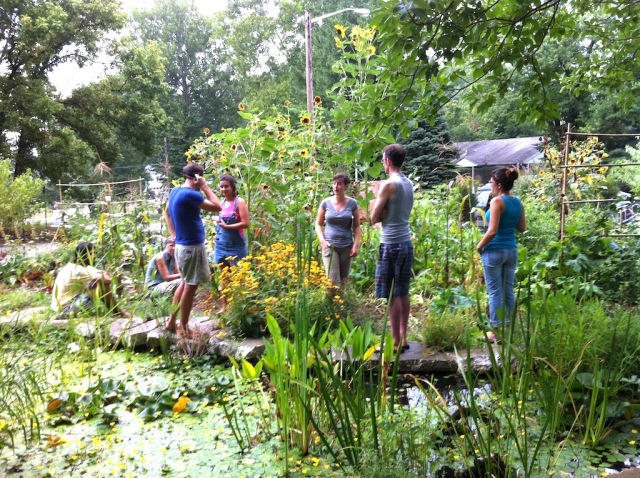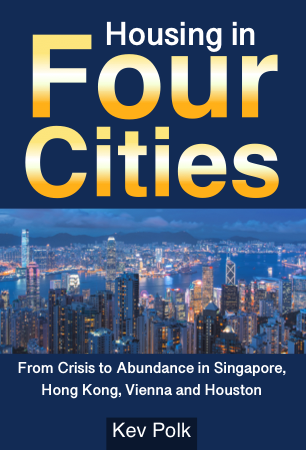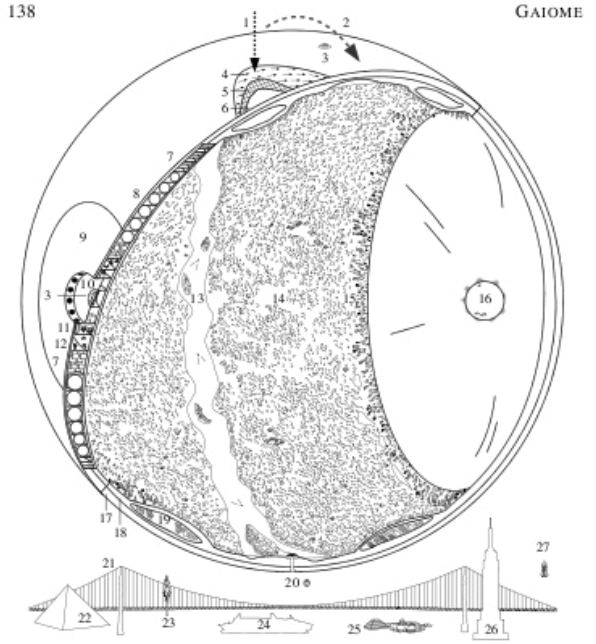
The Green Acres Neighborhood Garden and pond, which I helped build in Bloomington, Indiana, USA.
Sustainability used to mean inconvenient truths and deprivation. Now more and more of us are discovering how an Earth-friendly lifestyle, done properly, can add healthy years to our lives, bring us closer together, and save us tens of thousands of dollars a year. If you want to live green without the pain, check out my Edenicity Podcast, especially these episodes:
#4: Living Younger Longer Podcast + transcript, or YouTube
#6: Becoming a Green Millionaire Podcast + transcript, or YouTube
#23: Reinventing a Neighborhood Podcast + transcript, or YouTube + slides
Special note: the YouTube version of Edenicity has detailed slides in episodes 1 and 22-42.
Going a little deeper, abundant living is all about design. The trick isn't to do more or less of what we already do, but to discover entirely new and better ways to achieve even those goals that seem mutually exclusive. Case in point: while we were waiting for widespread access to COVID-19 vaccines in December of 2020, I wondered how we might prevent tens of millions more cases and hundreds of thousands more deaths while reopening the economy. Here's my design thinking on that.
The world's biggest problems require high-skill design, rather than the everyday variety that mainly consists of adding features to existing sytems. High-skill design strives to create entirely new and vastly higher-performing systems. This is a deeply mathematical process. Unfortunately, we have far more problems in the world than we have skilled designers. That's why I wrote Win The Test for students wanting better grades in Science, Technology, Engineering, Math and Economics. The book itself is a result of a lifetime of design thinking about the learning and testing process. As is so often the case with high-skill design, the results of Win The Test can seem miraculous. Check it out!▲

The small, slow approach to solving environmental problems has gone nowhere for decades. Meanwhile, projects such as Davis, California’s Village Homes and China’s Loess Plateau have profitably greened large landscapes in short amounts of time.
Now that the world’s urban population is growing by 67 million people a year, our best bet to heal the Earth is to disrupt the housing industry. Here’s how to do it profitably.
Check out my 42-episde podcast on building abundantly sustainable car-free cities. I'm also forming a company to make it happen. I'll post details as things progress.

My work on Edenicity led to participating in and taking notes for an international housing delegation. Together with 54 other delegates—legislators, planners, developers, investors activists, students and thought leaders— I learned the secrets of the world's most innovative housing programs from their key architects and managers. The lessons we learned are all in my new book, Housing in Four Cities exclusively on Gumroad.▲

In my 2007 book Gaiome, I showed that space habitats offer no escape from the world’s problems. However, I also made the case that once we end the mass extinctions we’re causing on Earth, we may be ecologically qualified to build artificial worlds beyond. I think this is a worthy aspiration for our species, and I worked out the specifics of how we might do it in some detail.
A lot has happened in space and ecology since I wrote my book, and I look forward to providing updates here as time allows. ▲